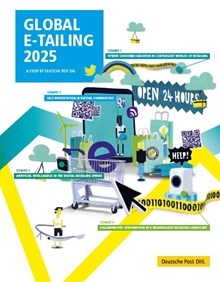
One of the key findings is that over the next 10 years, online retail will continue to gain popularity in both developed and emerging markets and as a result, logistics companies are set to play a key role in providing vital supply chain management solutions that are able to evolve with consumers' changing shopping habits.
The study explores future scenarios with alternative views of what e-commerce globally could look like for consumers and businesses in the near future, depending on various economic factors. The different future projections are based on a detailed analysis of the most influential factors affecting economies - from energy and raw material prices to technological, political and social factors, to retail and consumption patterns. The four possible scenarios are:
E-tailing could rise to 30% of market
According to Sumesh Rahavendra, head of marketing for DHL Express Sub Saharan Africa, e-tailing has exploded globally, especially in emerging countries and, despite the various possible future scenarios, it is clear e-tailing will continue to boom.
"Currently, e-commerce already makes up 8% of the overall trading volume in Europe. Depending on the scenario, this share could rise up to 40% in developed countries and up to 30% in today's emerging markets," says Rahavendra.
"The factor that all scenarios have in common is that the competition in electronic retail, whether on global, national or regional level, will become more intense. We don't know for certain what the world will look like in 2025, but the study's various scenarios show how rapid the global retail sector, both online and offline, is changing and that logistics will be a focal point of these change processes.
"While e-tailing can facilitate the transaction of the changing consumer trends, the delivery of the product needs to be considered. Many retailers put significant focus to attract customers, but more effort needs to be paid to facilitating flawless delivery to customers. Even more so, when deliveries begin being measured in minutes, as opposed to hours and days. This will require logistics to adapt, as well as deliver competitive advantages, such as offering same day delivery and flexible returns.
"In the future, logistics will take over the role as an enabler for online retailers even more so than today. As a logistics company, we have a good overview on companies in various industries in almost all countries of the world. In Africa, we are continually noticing the rise of e-tailing on the continent and we are increasingly becoming an advisor to these businesses and partner for success, as opposed to a just a traditional service provider," concludes Rahavendra.
To view the full report, click here.